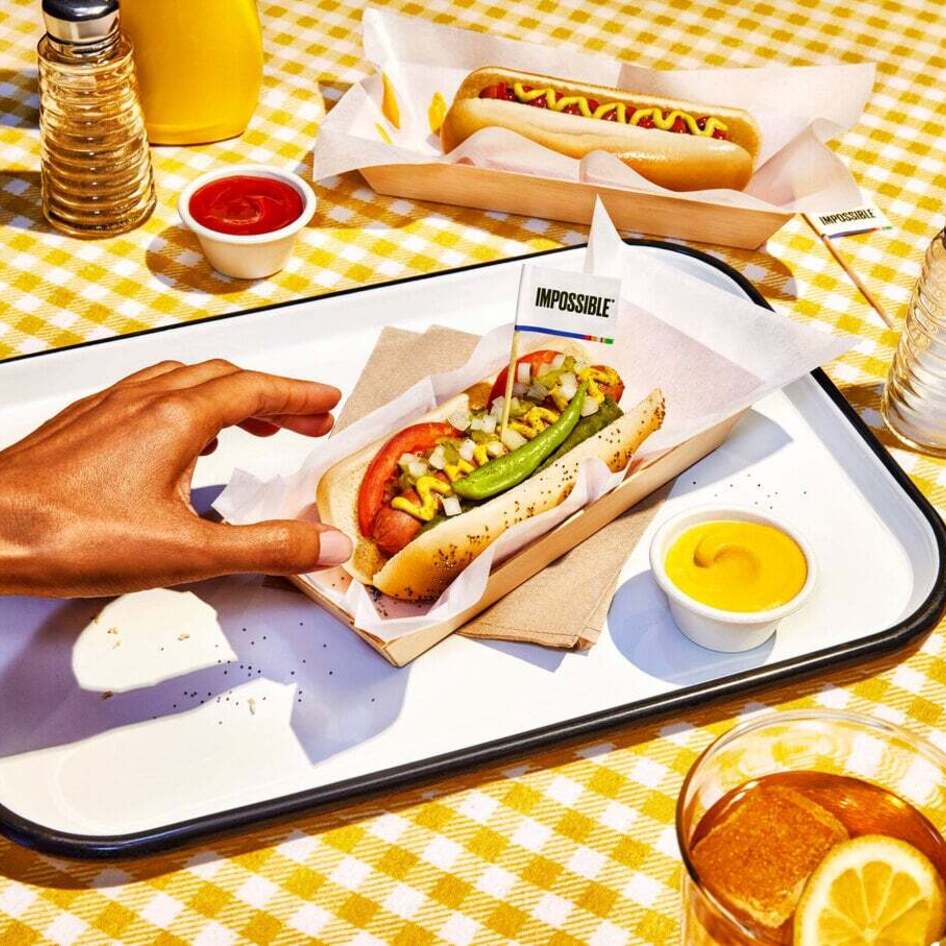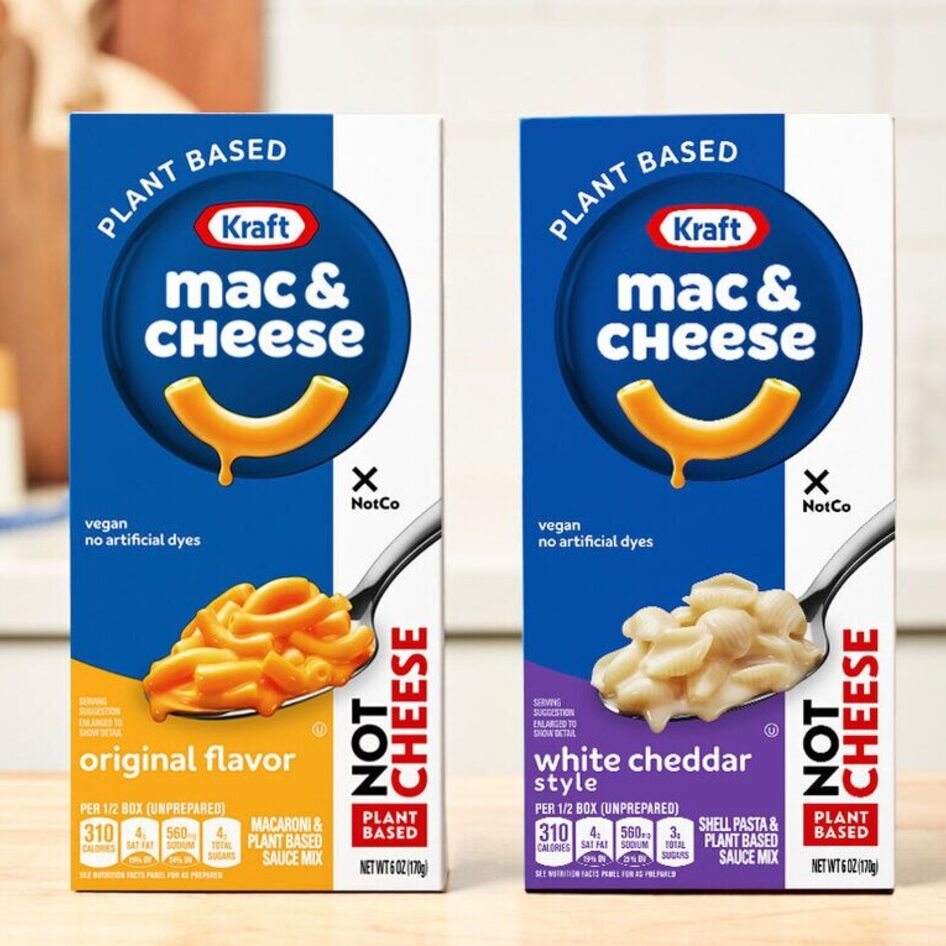In the late 1940s, most people in America were eating meat. Diets weren’t quite as meat-heavy as they are now (rationing led people to eat a lot more fruits and vegetables), but they were meat-centric. Vegetarianism as a lifestyle choice was unusual, and veganism was practically unheard of. It’s not surprising—plant-based options were limited. There were no juicy Beyond Burgers or Quorn nuggets to feast on, for example. But it’s important to note that there were some choices, and one of them was a veggie dog in a can.
Thanks to Worthington Foods (which now has evolved into Morningstar Farms), vegetarian hot dogs first hit the shelves in 1949, some research suggests. Founded by Seventh-Day Adventist George Harding III in 1939, Worthington Foods was one of the first brands in the US to offer plant-based meat choices. Its first product, the meat-free Choplet Burger, was introduced in 1945, and then four years later came Soyloin Steaks and Meatless Wieners (otherwise known as veggie dogs).
The vegetarian sausages, which were renamed Veja-Links in 1954, according to the Soy Info Center, are still sold today, only they’re now under the California-based Loma Linda brand. But now, this OG plant-based product is facing some serious competition in the plant-based market.
Major meat brands back the rise of veggie dogs
For quite some time now, burgers have hogged the limelight when it came to plant-based innovation. But now, it’s looking like it’s the veggie dog’s time to shine.
Earlier this year, Oscar Mayer announced it was entering the vegan hot dog category via a partnership with The Kraft Heinz Not Company (a joint initiative between Oscar Mayer’s parent company Kraft Heinz and the Chilean food-tech brand The Not Company). The US meat giant was founded in the 1880s and has long been known for its hot dogs (in 2023, it made $89 million in hot dog sales alone), but up until now, they have always been made with animal meat.
To effectively mimic the taste and texture, The Kraft Heinz Not Company used plant-based ingredients like mushroom, tomato powder, and seaweed (for the casing).
“When deciding which products to bring to market, we analyze various categories, taste, and ingredient profiles, as well as the consumer need for a great tasting product,” Danielle Watts, Associate Director of Marketing at The Kraft Heinz Not Company, told VegNews recently. “Throughout the development of Oscar Mayer NotHotDogs and NotSausages, we leveraged key characteristics from our proprietary Oscar Mayer flavor profile to ensure we were mapping back to the savory and smoky experience fans have known and loved for over 140 years.”
But Oscar Mayer isn’t the only company reviving the veggie dog. Last year, Impossible Foods launched its own take on one of the first-ever plant-based meat products, with the launch of the Impossible Hot Dog. According to the popular vegan brand, its new vegan hot dogs have twice the amount of protein than their animal-based counterpart and 50-percent less saturated fat. They also contain zero cholesterol.
Veggie dogs: a healthier option than meat
Without a doubt, veggie and vegan hot dogs are far healthier than their meaty rivals, which are often made with pork or beef. Processed meat is linked with a higher risk of cancer, as well as type 2 diabetes and heart disease. However, research suggests opting for plant-based alternatives may actually lead to an improvement in cardiovascular health.
In a bid to offer healthier alternatives, Wienerschnitzel, the world’s largest hot dog chain, also launched veggie dogs back in 2022, and the year before, popular hot dog chain Nathan’s Famous launched its first meat-free hot dog in partnership with The Meatless Farm.
“With a great taste, texture, and a snap when you bite it, the plant-based hot dog is a perfect alternative to a traditional iconic hot dog.” —Helene von Reis, Food Manager at Ikea of Sweden
But, arguably, one of the most iconic hot dog destinations is Ikea. For more than 40 years, the Swedish furniture giant has offered its customers hot dogs in-store for a bargain price. But now the chain wants to help customers make healthier choices, so it has launched a vegan version of the hot dog that mimics the original in every way—it just doesn’t contain animals.
“We have spent much time in the development process to give the best experience for our customers,” Helene von Reis, Food Manager at Ikea of Sweden, said in a statement.
Veggie and vegan hot dogs have more to offer than health benefits, they’re also more eco-friendly than their animal-based counterparts by a long way. They emit fewer emissions (14.5 percent of global greenhouse gas emissions are generated by livestock) and cause less destruction to the earth (beef is a leading driver of deforestation).
“We want to offer more plant-based alternatives with a lower climate impact,” added von Reis. “Choosing plant-based food often impacts climate footprint less than animal-based options.”
Every year, Americans eat around 20 billion hot dogs. But now, major brands can finish what Worthington Foods started, by proving that veggie dogs are the superior choice in terms of health, the planet, the animals, and taste, too.
For more plant-based stories like this, read:
JUMP TO ... Latest News | Recipes | Guides | Health | Shop
Here at VegNews, we live and breathe the plant-based lifestyle, and only recommend products we feel make our lives amazing. Occasionally, articles may include shopping links where we might earn a small commission, but in no way does this effect the editorial integrity of VegNews.











.jpg?sha=9044db258037957f)
